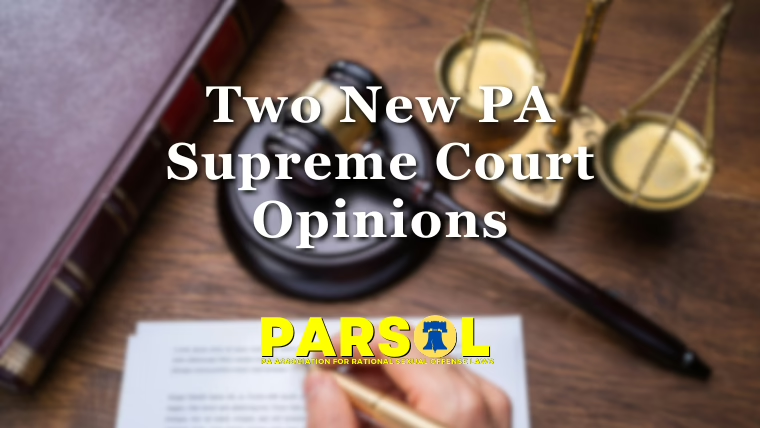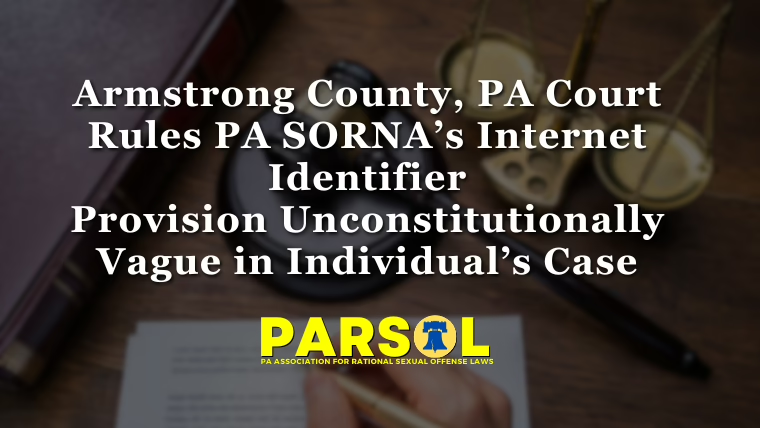The Supreme Court of Pennsylvania (SCOPA) heard oral arguments in a consolidated case of Mr. Claude Lacombe and Mr. Michael Witmayer in November of 2019 challenging the constitutionality of Subchapter I of PA’s Sex Offender Registration and Notification Act (SORNA). SCOPA ruled Subchapter I is “non-punitive and does not violate the constitutional prohibition against ex post facto laws”. This is a big reversal from their ruling in Muniz where SORNA was found to be punitive therefore in violation of the U.S. and PA ex post facto clause. Subchapter I is the General Assembly’s attempt to not lose registrants whose crimes occurred between April 22, 1996 (start date of Megan’s Law in PA) and December 20, 2012 (start date of SORNA I) and a legislative “fix” in response to Muniz . The General Assembly did remove some crimes that brought upon the application of SORNA and decreased the occurrence of in-person registration to the PA State Police. However, kidnapping and luring a child into a motor vehicle are not necessarily sexually related but are still included under Subchapter I.
SCOPA applied the Mendoza-Martinez factors, a test to determine whether a statute is punitive or non-punitive, to Subchapter I just as they did to SORNA in Muniz. The underlying factors that determined the statute was non-punitive are whether Subchapter I involves an affirmative disability or restraint and whether there is an alternative purpose to which Subchapter I may be rationally connected. Regarding the first point, in-person reporting requirements were reduced annually rather than the previous quarterly registration. But, this only applies for the ten-year registrants. Those labeled as Sexually Violent Predators (SVP) still need to report quarterly. The General Assembly also added a removal mechanism only for life-time registrants who have perfectly behaved with no conviction of any offense punishable by imprisonment of more than one year. SCOPA found that these changes helped make the statute non-punitive. The second factor of an alternative purpose to the statute is stated by the General Assembly is to“[p]rotect the safety and general welfare of the people of this Commonwealth by providing for registration, community notification and access to information regarding sexually violent predators and offenders who are about to be released from custody and will live in or near their neighborhood”. We know that current empirical research shows that registries have no effect in protecting our communities. This is another myth that will have to be challenged in the courts.
We have lost another battle but we have not lost the war. We currently have our eyes fixed on Com. v. George Torsilieri. Mr. Torsilieri will be challenging the frightening and high myth in an evidentiary hearing back at the Chester County Court of Common Pleas. For more information on this case please read our article Commonwealth of Pa. v. Torsilieri: SORNA Scientific Evidentiary Showdown published June 19.




